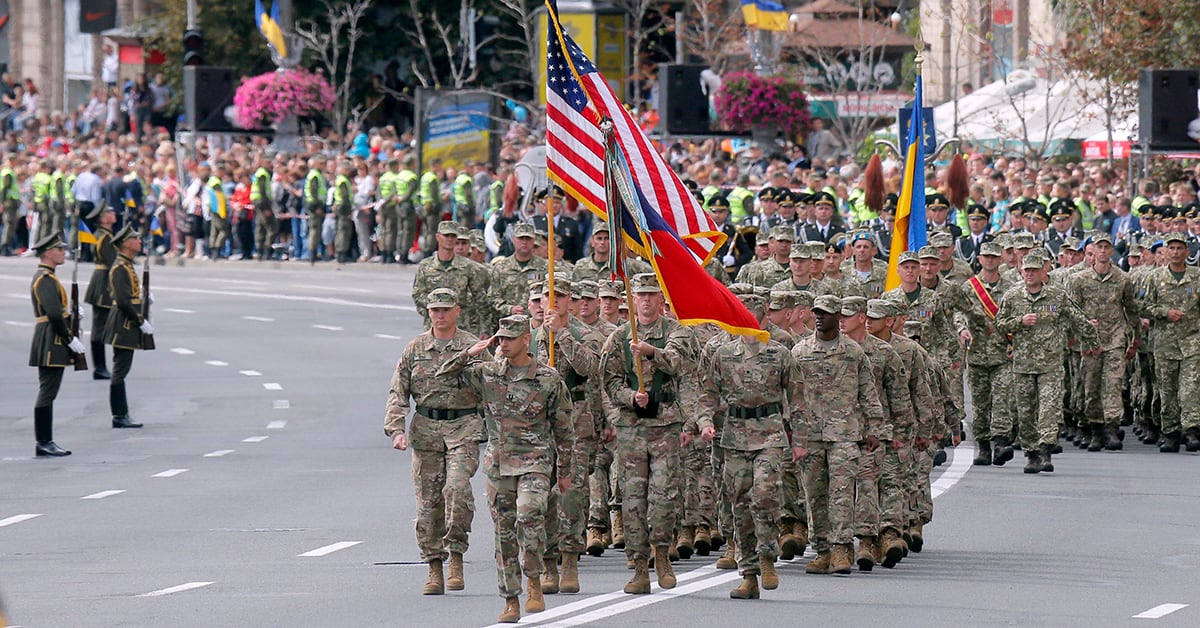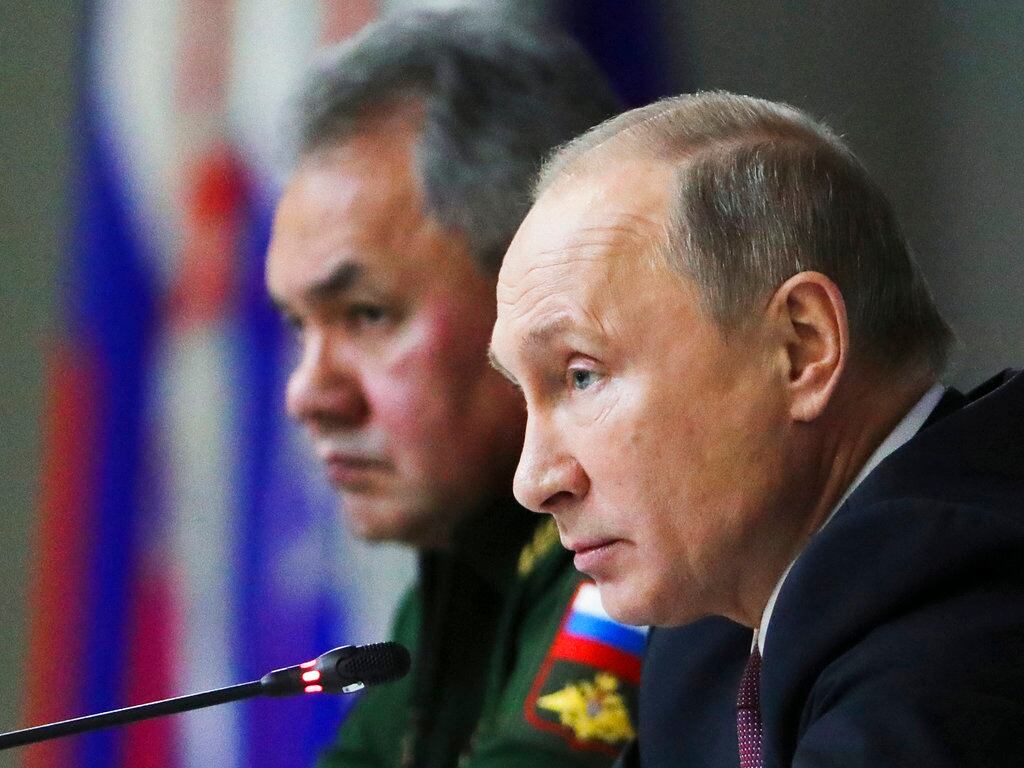MOSCOW — Russian President Vladimir Putin on Friday accused the U.S. of violating a landmark Cold War-era nuclear arms pact and harboring aggressive intentions, and pledged to fend off any potential threats at a fraction of the U.S. cost.
Putin, speaking during a meeting with the top military brass, alleged that the U.S. missile defense sites in Romania containing interceptor missiles could also house ground-to-ground intermediate-range cruise missiles, which would be in violation of the 1987 Intermediate-range Nuclear Forces (INF) Treaty.
He added that U.S. launches of target vehicles as part of tests represented another violation of the pact that bans all land-based cruise and ballistic missiles with a range between 500 and 5,500 kilometers (310-3,410 miles).
Washington has rejected claims of perceived violations and accused Russia of breaking the pact by developing a new cruise missile, accusations Moscow has denied.
“They are searching for some violations on our part while consistently infringing on it themselves,” Putin said. “All that seriously affects security in Europe and in the whole world.”
RELATED

The Russian leader also pointed at the new U.S. national security strategy as proof of what he described as Washington’s aggressive intentions.
He emphasized that the deployment of NATO forces near Russia’s borders has threatened its security.
“When we move military units on our own territory, they present it as some kind of a threat,” he said. “And when they move military bases, infrastructure and new weapons near our borders they present it as something normal. It’s probably normal for those who do it, but not for us.”
NATO has deployed military units to Poland and the Baltics to reassure allies worried over Russia’s intentions following its 2014 annexation of Ukraine’s Crimea and its support for pro-Russia separatists in eastern Ukraine.
Putin mentioned NATO’s U.S.-led missile defense system and efforts to develop new prospective conventional weapons among other security challenges.
Russia has long expressed concern about the U.S. Prompt Global Strike program — prospective conventional weapons systems that would be capable of delivering a quick precision strike anywhere in the world within an hour.
“Why do they need such weapons?” Putin said. “I believe they want it for one thing — blackmail — as it creates an illusion of a possible strike with impunity.”

Putin insisted that the Russian military has all the means to protect the nation, and that the focus will be on cutting-edge military technologies to maintain a military parity with the U.S. and its allies.
“We will not let ourselves be drawn into a senseless arms race that will exhaust our economic potential,” he said.
Putin noted that the Pentagon’s budget of about $700 billion next year dwarfs the Russian military budget of some $47 billion.
Russian Defense Minister Sergei Shoigu said that a massive arms modernization program has allowed the military to commission 182 intercontinental ballistic missiles, over 1,000 aircraft, more than 3,200 tanks and other armored vehicles and more than 150 navy ships over the past five years.
He said that the military gained “priceless” experience during the Syrian campaign, with more than 48,000 servicemen spending shifts there. He said up to 90 percent of all Russian combat pilots flew at least 100 combat sorties each to the total of 34,000 missions in Syria since the start of the Russian air campaign in September 2015.
Shoigu said that the military has killed over 60,000 militants, including 2,840 Russian citizens during its campaign in Syria.
He emphasized said that the military tested the entire range of its arsenals in Syria, including long-range cruise missiles launched by navy ships, submarines and strategic bombers and ground-based Iskander ballistic missiles.
Shoigu said that the military has withdrawn 36 combat planes and 4 helicopters from Syria along with a battalion of military police, field engineers, military doctors and special forces units earlier this month in line with Putin’s orders.
The minister noted that Russia will continue operations at the Hemeimeem air base and the Tartus naval supply facility and also retain three battalions of military police in Syria among other military personnel.
Putin, who visited the Hemeimeem air base earlier this month, said Friday the campaign has demonstrated an enhanced capability of the Russian armed forces. “The situation in Syria and the military-political situation in the world have proven the timeliness of our decisions to strengthen the army and the navy,” he said.





